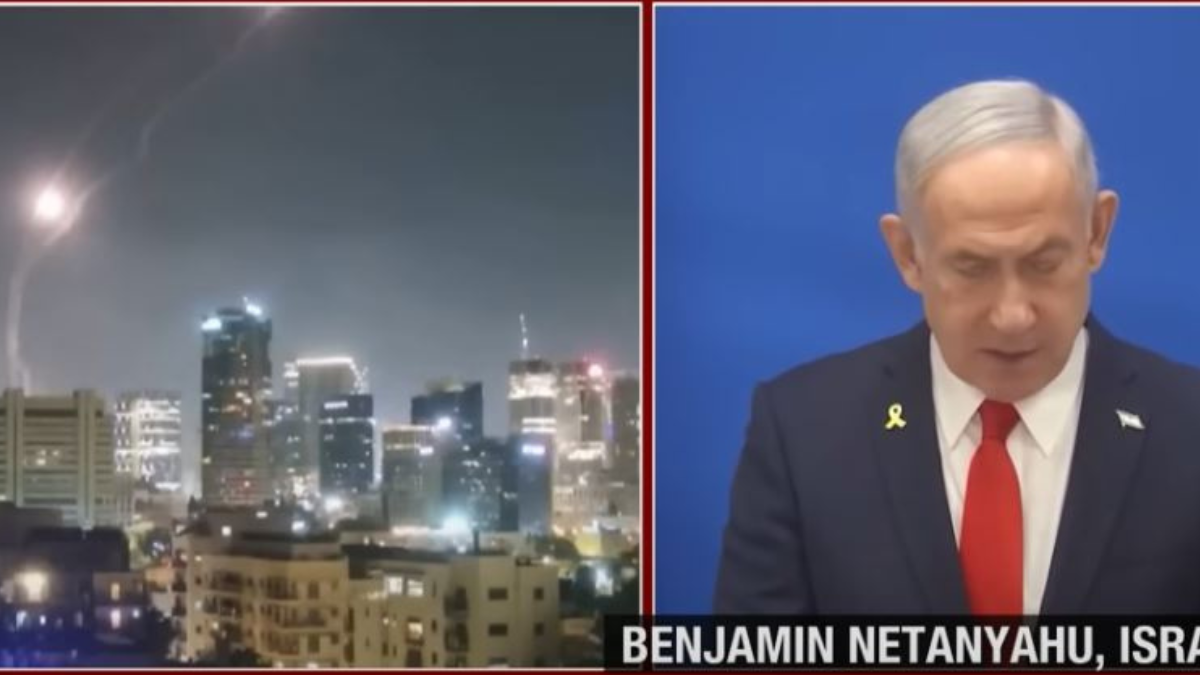As of June 18, 2025, the Israel–Iran conflict has intensified into a full-scale war, dramatically altering the geopolitical landscape of the Middle East.The ongoing hostilities have led to significant casualties, widespread displacement, and heightened global concerns about regional stability and nuclear proliferation.The crisis ignited when Israel launched “Operation Rising Lion”, dispatching over 200 aircraft to strike Iranian nuclear and missile facilities targets like Natanz, Tabriz and Tehran to degrade Teheran’s military infrastructure.Satellite images later revealed damage to underground installation at Natanz and Iran’s oil depot near Shahran, setting Tehran alight with fires.In swift retaliation, Iran deployed dozens of ballistic missiles and drones toward Israel overnight sirens wailed in Jerusalem and Tel Aviv, with drones and missiles lighting up Israel’s night sky.Though its Iron Dome and Patriot systems intercepted around 90–99 % of incoming munitions,residential zones in Tel Aviv and Rishon LeZion were hit, killing civilians and injuring dozens.Israel pounded Tehran using over 50 fighter jets, targeting missile silos, nuclear‑adjacent complexes, and top military commanders.Tehran responded with multiple barrages of ballistic and hypersonic missiles claims report more than 400 fired since the exchange began, a third or more breaching Israeli defenses. Israel’s Iron Dome and Arrow batteries intercepted most munitions, yet breaches struck Haifa’s Bazan refinery and Tel Aviv suburbs, causing civilian death and infrastructural damage.As military operations escalated, global alarm grew U.S. embassy sections in Jerusalem closed, China and Greece evacuated citizens and Russia,Turkey, Germany and the EU urged immediate de‑escalation
Escalation of Hostilities
The conflict began on June 13, 2025, when Israel launched Operation Rising Lion, a series of airstrikes targeting Iran’s nuclear facilities, military installations and missile production sites. These strikes resulted in the deaths of at least 585 individuals and wounded over 1,300 others, according to human rights organizations.In retaliation, Iran launched a barrage of missiles at Israel, with most intercepted by Israel’s Iron Dome defense system. Despite these defenses, the attacks have caused significant damage and casualties within Israel.
Military Developments
Israel has reportedly destroyed two centrifuge manufacturing sites near Tehran, critical for uranium enrichment, according to the International Atomic Energy Agency (IAEA). In response, Iran has vowed a “punishment operation” and continues to target Israeli cities with missile strikes.
The United States has increased its military presence in the region, repositioning aircraft and naval assets closer to the conflict zone.President Donald Trump has authorized these deployments but has refrained from direct military involvement, emphasizing the need for Iran’s unconditional surrender.
Diplomatic Stalemate
Iran’s Supreme Leader, Ayatollah Ali Khamenei, has rejected calls for surrender, stating that Iran will not yield to threats or imposed peace.He warned that any U.S. military intervention would result in “irreparable damage”.The international community, including China, Germany, and Egypt, has urged both nations to de-escalate and engage in diplomatic dialogue.However, these appeals have thus far been unsuccessful in halting the conflict.
Humanitarian Crisis
The ongoing Iran conflict has led to a significant humanitarian crisis. Over 100,000 people have fled Tehran, seeking refuge in northern provinces or neighboring countries. The Iranian government has imposed temporary internet restrictions, further complicating communication and aid efforts.International organizations, including the United Nations and the International Committee of the Red Cross, have called for the protection of civilians and the provision of humanitarian assistance. However, the volatile security situation has hindered relief operations.
Global Implications
The Israel–Iran conflict has far-reaching implications beyond the Middle East. The United States’ involvement has raised concerns about a broader regional war, while Israel’s actions have prompted discussions about the future of nuclear non-proliferation efforts. The conflict has also impacted global energy markets, with disruptions in oil production and transportation routes.As the situation continues to evolve, the international community remains on edge, closely monitoring developments and seeking avenues for peace and stability.
